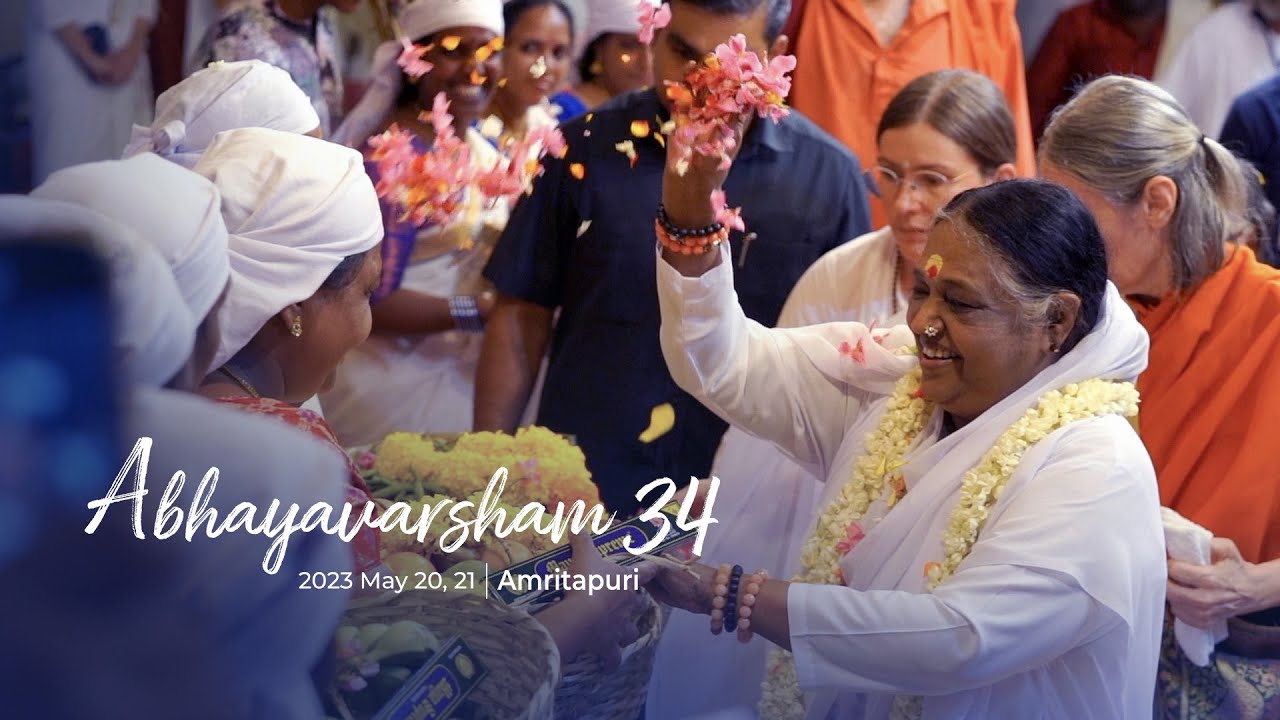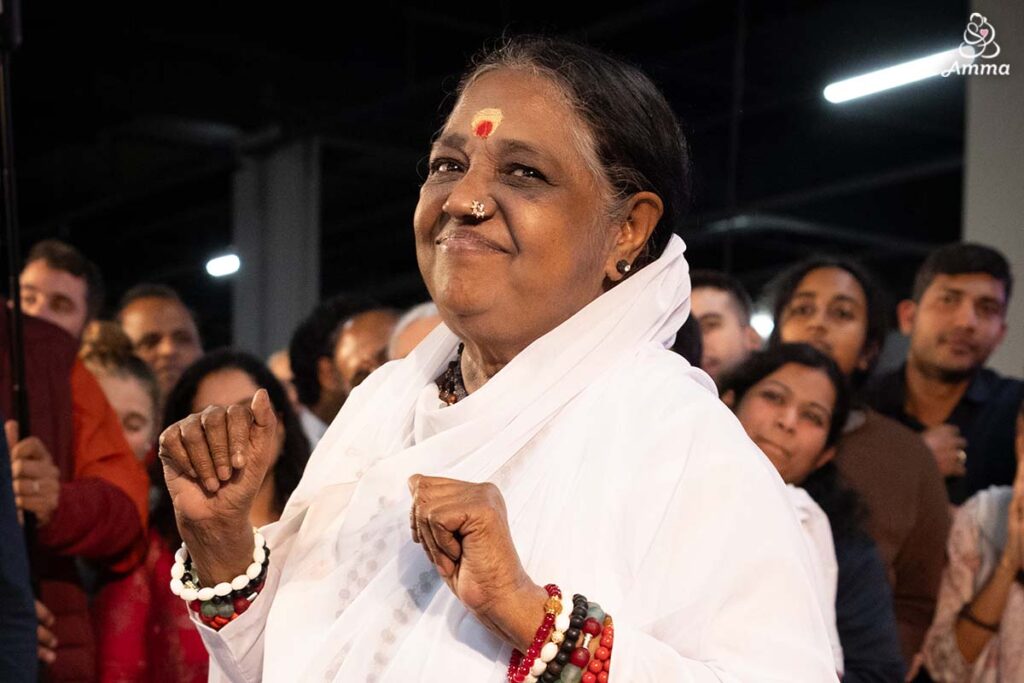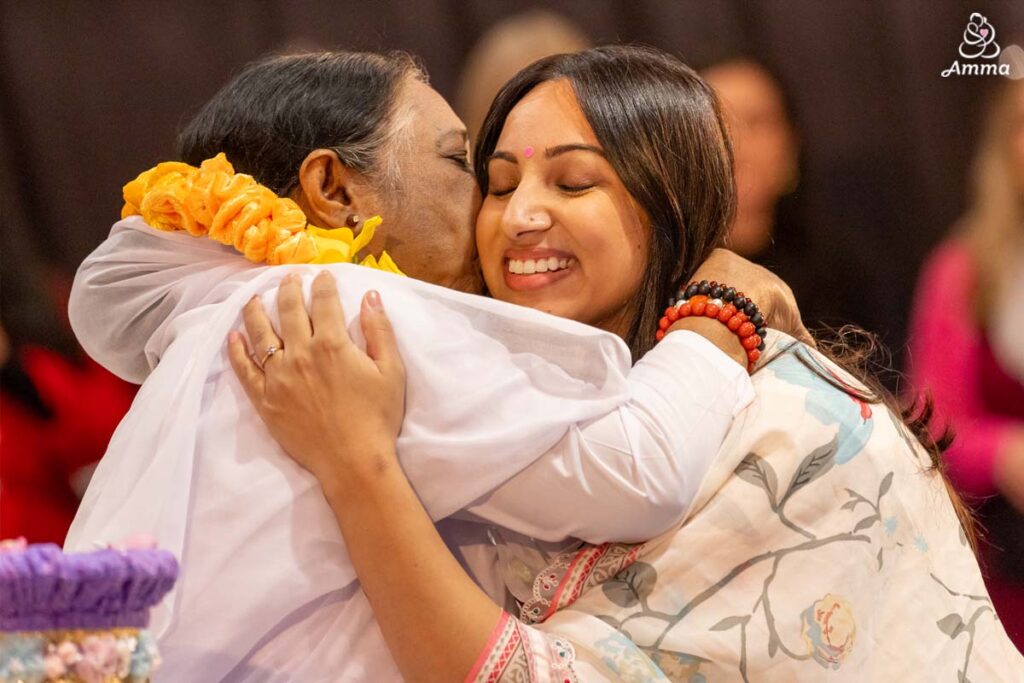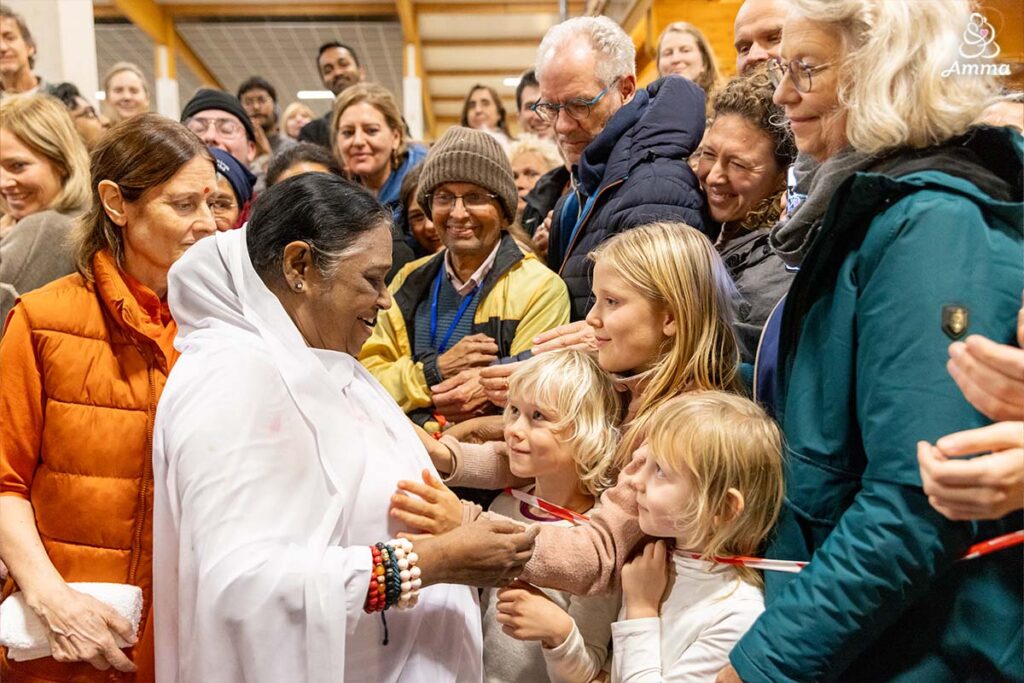Generations of indigenous and other local communities have been transformed from endemic poverty to citizens that combine cultural heritage with modern day living.
More than 1,500 alumni of all ages gathered in Amritapuri to celebrate 34 years since MAM took over an orphanage in Paripally, Kerala. What was once a sad tale of malnourished children living in unsanitary conditions has become a joyful annual event filled with cultural traditions to express gratitude to the Divine Grace that saved them.
About 800 of the alumni were born in the Attapadi community in Palakkad District, as well as villages in Wayanad District. These are locations that are home to Kerala’s largest tribal settlements.
Upon Amma’s arrival at the ceremony for Abhayavarsham 34, they honoured her with a traditional procession. As many of them are from communities of forest-dwellers, they offered natural products, including wild honey.
The two Chief Guests were Nanjiyamma from Palakkad and Cheruvayal Raman from Wayanad, both of whom are renowned for their efforts to preserve the culture of their respective regions. In the larger context, they are trailblazers in restoring the anthropological wealth of Indian heritage.
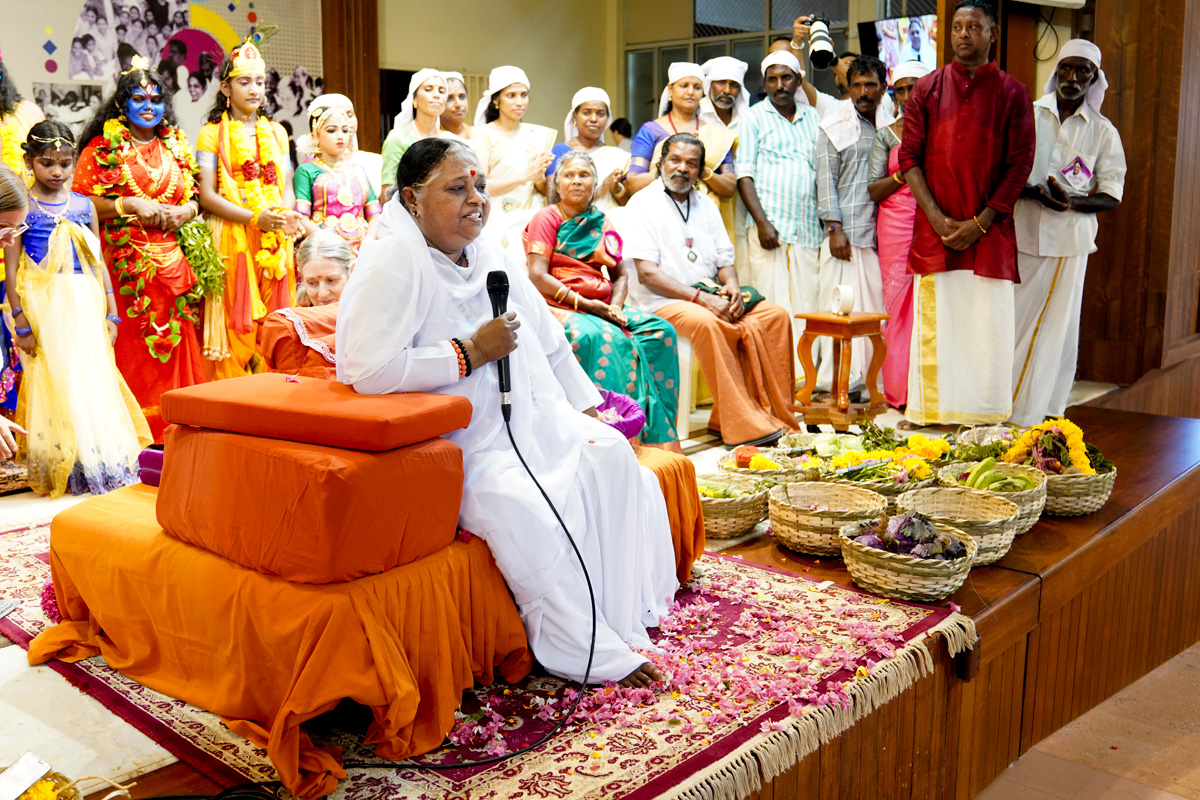
Nanjiyamma is a folk singer from an Irula village in Attapadi and shares a repertoire of generations-old songs in the Irula language. In 2020, she became famous across the country for the song Kalakkatha Sandana Meram which she wrote and sang for the Malayalam movie Ayyappanum Koshiyum. She was awarded the National Film Award for Best Female Playback Singer. She captured all hearts at Abhayavarsham 34 when she took to the microphone to sing.
Meanwhile, Cheruvayal Raman is with the Kurichiya tribe, the traditional paddy cultivators of Wayanad. This year, he was awarded the Padma Shri Award for his efforts to conserve indigenous rice varieties. Thusfar, he has recovered 60 natural varieties of the more than 100 that existed before the hybrid practices of modern farming.
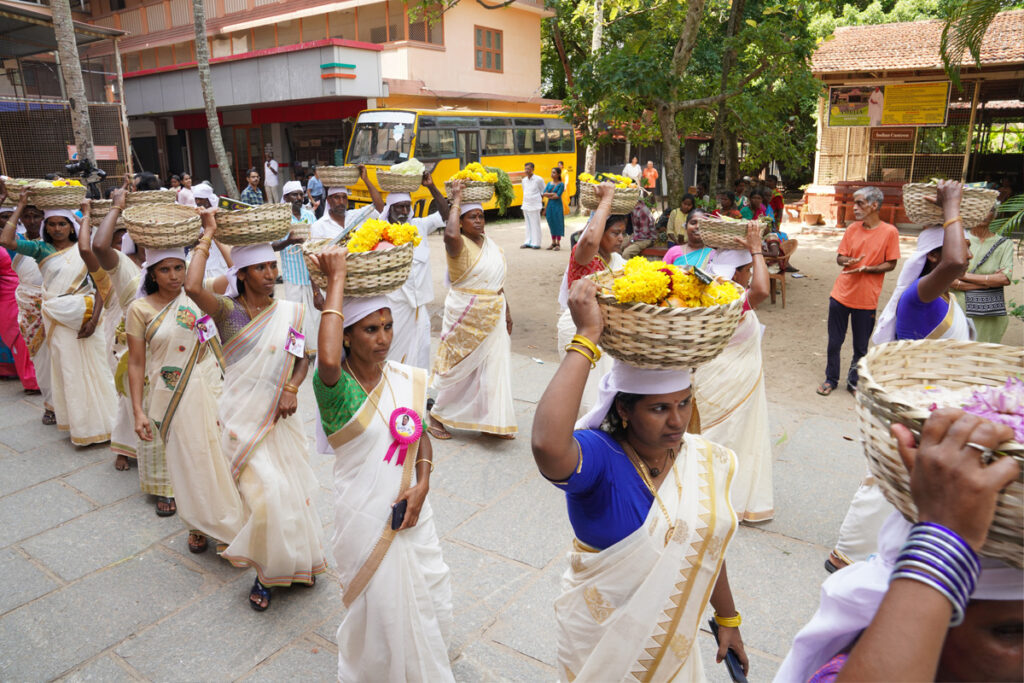
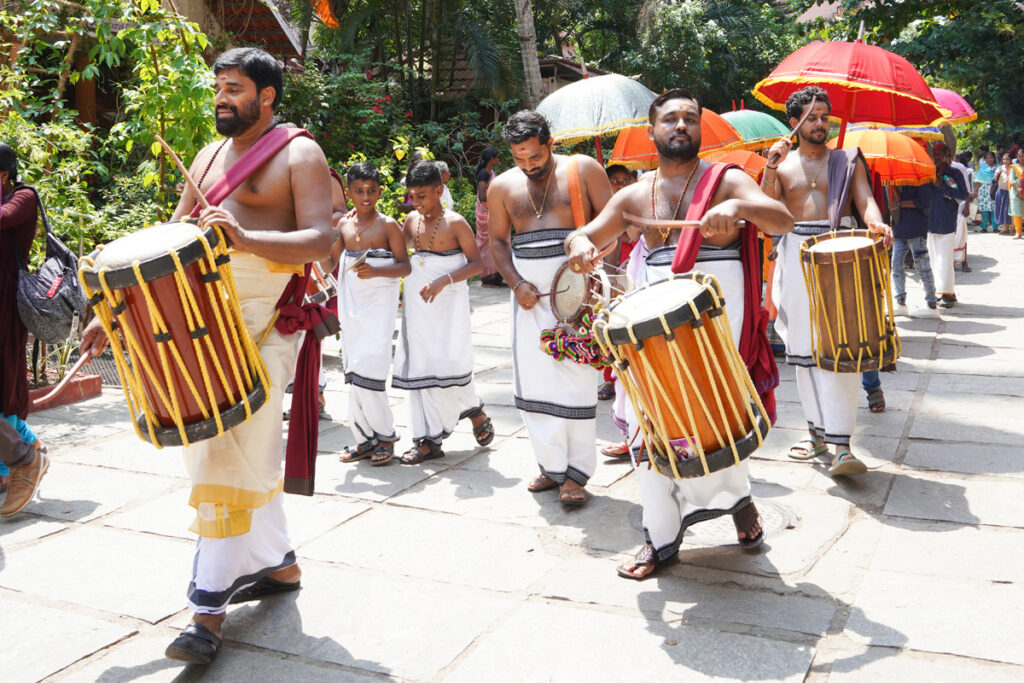
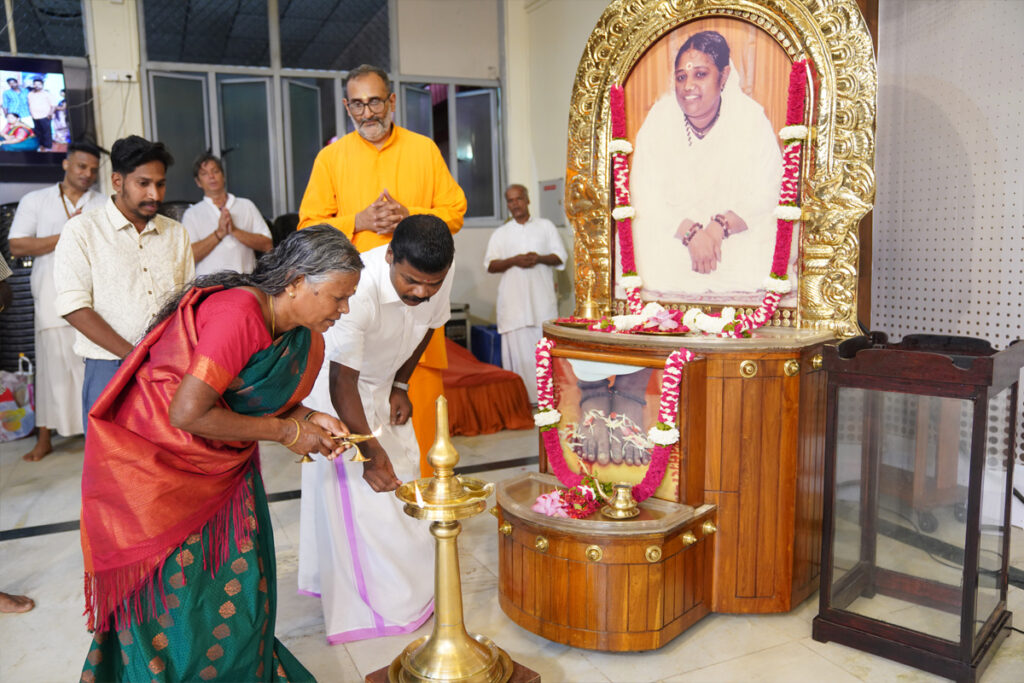
Amrita Niketanam is home to up to 400 children, with many rescued from households of poverty and its resulting drug and alcohol abuse, domestic violence, and sexual abuse. It is a trauma pattern that occurs the world over when local and Indigenous people are dispossessed of their traditional lands and their livelihoods are undermined. Belief systems, cultures, languages, and ways of life have been and continue to be threatened, sometimes even by extinction.
Amrita Niketanam works to break the resulting behavioural patterns passed down from generation-to-generation and restore the sense of cultural heritage and wisdom. Amma has also established Amrita Sanskrit Secondary School, the largest school in Kerala to teach Sanskrit as the first language. The children excel in music, sports, and dance, alongside computer science. It is an ideal blend of traditional knowledge and modern-day development.
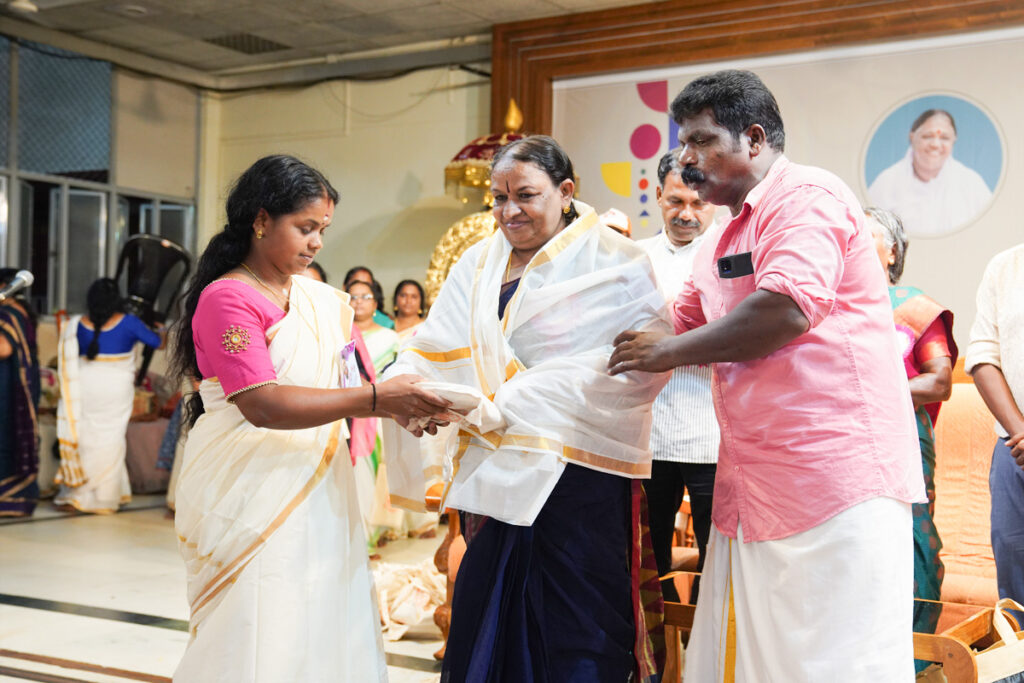
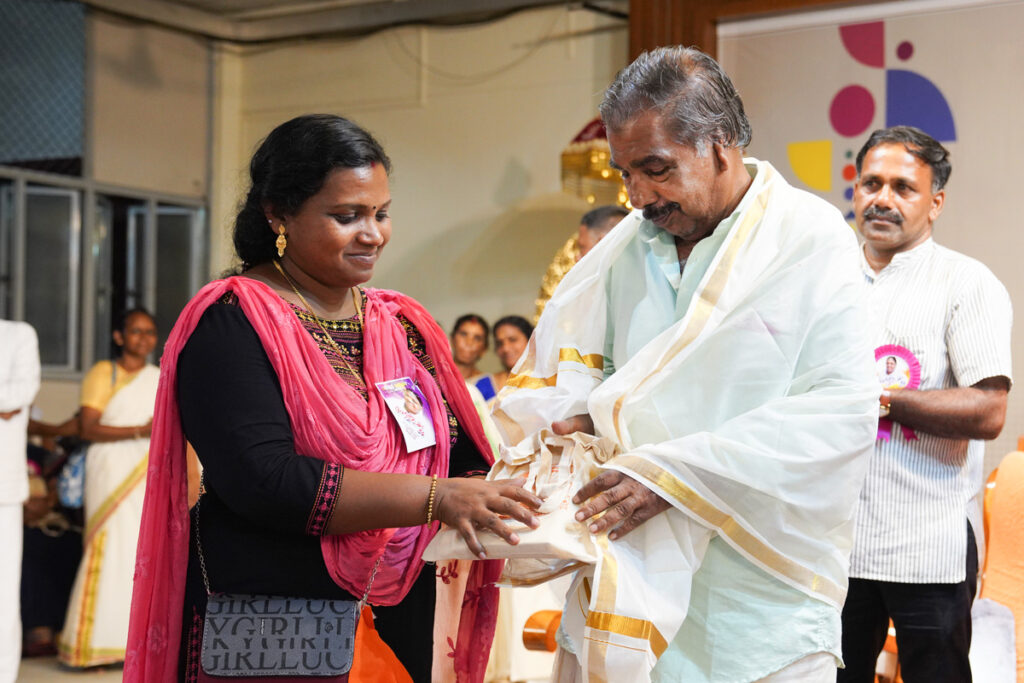
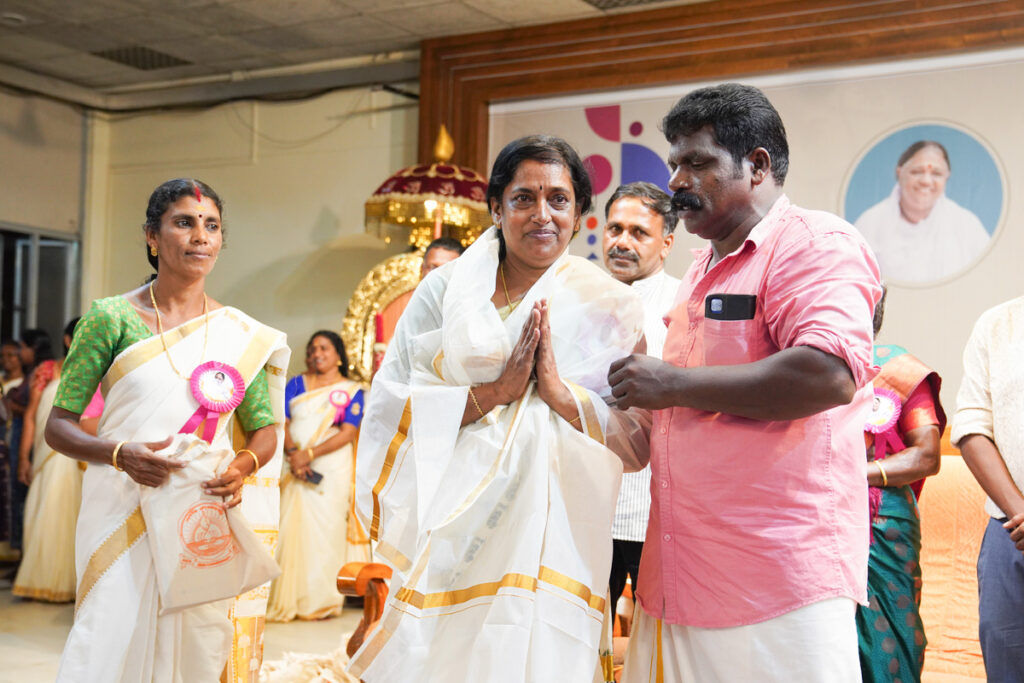
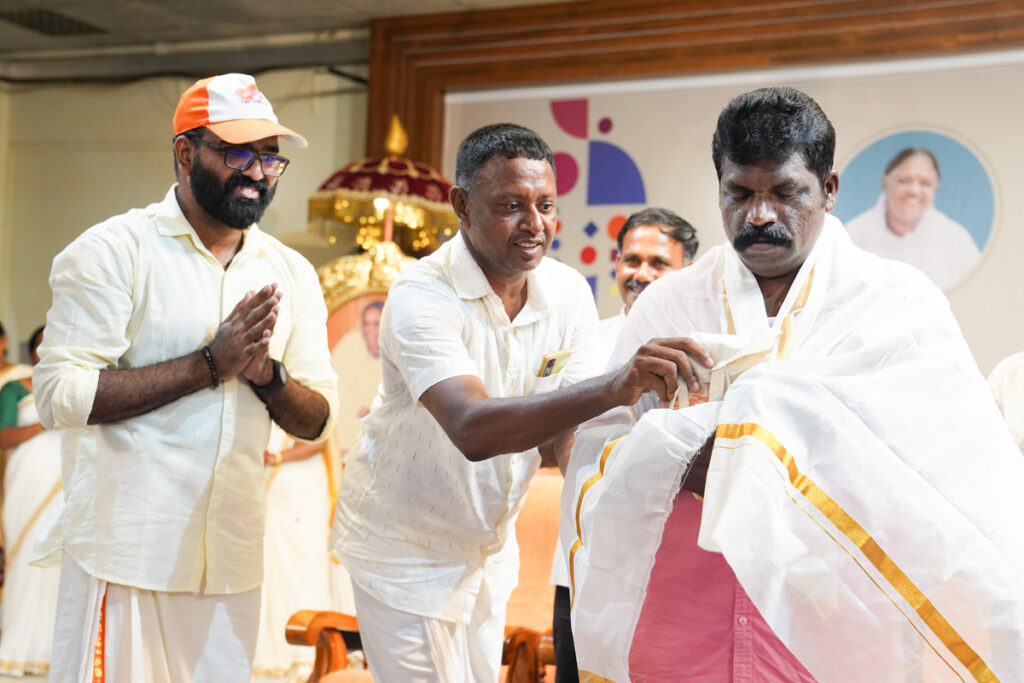
The original orphanage was established in 1964. Sinking under the weight of heavy financial debts, the institution’s headmaster contacted Amma for help in 1989. Amma diverted the funds set aside to build the Kali Temple of the ashram and completely renovated the facilities and transformed the atmosphere with a profound concern for the children’s wellbeing.


